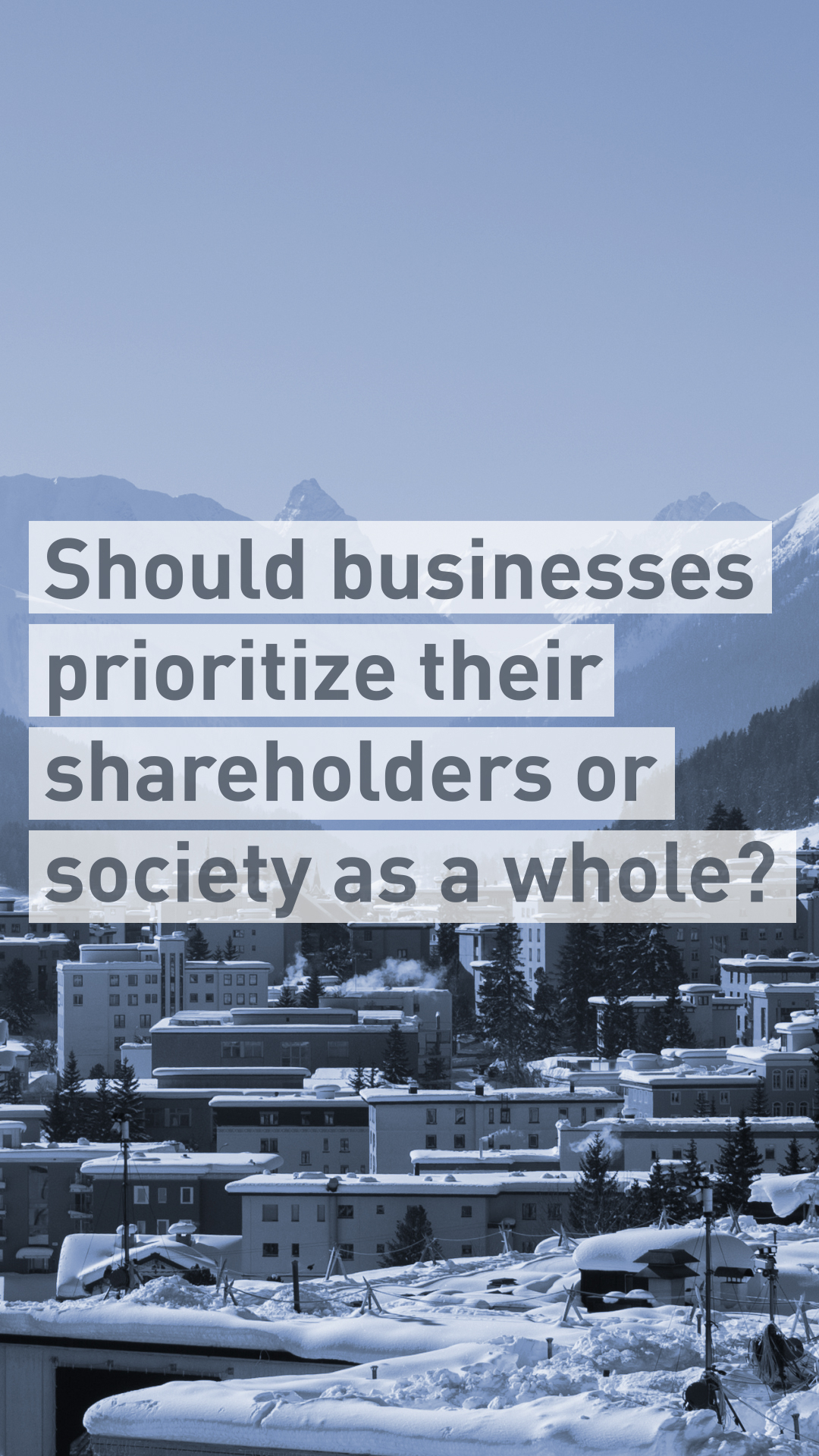03:06

Stakeholder capitalism was one of the big talking points at this year's World Economic Forum in Davos, Switzerland. The concept is pitched as an alternative to shareholder capitalism – instead of businesses being solely accountable to their investors and owners they are prioritising the needs of customers, employees, communities and the environment.
That model has been challenged on social grounds almost since it was conceived: from mandatory board positions assigned to workers representatives to cooperative models through which suppliers or clients take ownership of an organization.
But it has been the environmental crisis of global warming that has forced companies to think even more broadly – about those who may never have any direct relationship with their operations, but are still impacted by their activities.
In that way, a software company on the west coast of the U.S. can consider the perspective of an islander in the Pacific when making decisions about how to power its operations.
CGTN's Jemima Walker took the opportunity to explore how some of the world's biggest businesspeople are approaching the question.